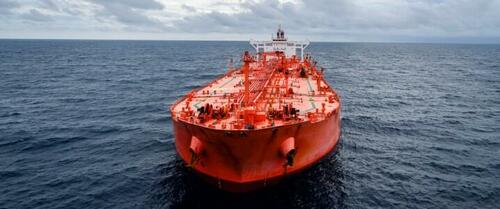
By Charles Kennedy of OilPrice.com
Shipping rates in the Black Sea have risen by 20% since the start of the year as war risk insurance premiums increase, Reuters reported, citing unnamed industry sources.
What’s more, some insurers have stopped providing coverage for ships and planes moving goods to and from Belarus, Russia, and Ukraine. Reinsurers have also pulled out of the region on heightened risks, the report noted.
The Black Sea, which is shared by Romania, Bulgaria, Ukraine, Russia, Georgia, and Turkey, is a major oil and oil product shipping artery.
“The effect of (the exit of reinsurers) is reducing (underwriting) capacity in the market for war risk and will mean people will pay more this year,” one of the Reuters sources explained.
These higher rates and limited availability of reinsurance coverage add to industry woes related to the G7 price cap imposed on Russian oil exports. Per the rules of the cap regime, Western insurers, which constitute about 90 percent of all maritime insurers, are banned from providing coverage for vessels carrying Russian crude sold at over $60 per barrel.
According to a recent FT report, about a quarter of Russian oil shipments in December had Western insurance coverage, suggesting at least this quarter was sold at less than $60 per barrel. Indeed, Russia’s Urals has been trading below $60 per barrel for more than a month.
Higher freight rates for Black Sea shipping, however, would add to the costs of the goods being shipped through the chokepoint.
“For shipments going in and out of Russia you will find premiums going up. It could easily rise by 50% (from the end of last year) to reflect the cost of capital from not being reinsured,” another Reuters source said.
On the flip side, tanker rates have declined despite expectations of a spike after the EU embargo on Russian crude went into effect. Among the reasons is the embargo itself: European refiners ramped up their intake of Russian crude before December 5 and after that date came the buying spree subsided and died out, effectively reducing demand for tankers.
By Charles Kennedy of OilPrice.com
Shipping rates in the Black Sea have risen by 20% since the start of the year as war risk insurance premiums increase, Reuters reported, citing unnamed industry sources.
What’s more, some insurers have stopped providing coverage for ships and planes moving goods to and from Belarus, Russia, and Ukraine. Reinsurers have also pulled out of the region on heightened risks, the report noted.
The Black Sea, which is shared by Romania, Bulgaria, Ukraine, Russia, Georgia, and Turkey, is a major oil and oil product shipping artery.
“The effect of (the exit of reinsurers) is reducing (underwriting) capacity in the market for war risk and will mean people will pay more this year,” one of the Reuters sources explained.
These higher rates and limited availability of reinsurance coverage add to industry woes related to the G7 price cap imposed on Russian oil exports. Per the rules of the cap regime, Western insurers, which constitute about 90 percent of all maritime insurers, are banned from providing coverage for vessels carrying Russian crude sold at over $60 per barrel.
According to a recent FT report, about a quarter of Russian oil shipments in December had Western insurance coverage, suggesting at least this quarter was sold at less than $60 per barrel. Indeed, Russia’s Urals has been trading below $60 per barrel for more than a month.
Higher freight rates for Black Sea shipping, however, would add to the costs of the goods being shipped through the chokepoint.
“For shipments going in and out of Russia you will find premiums going up. It could easily rise by 50% (from the end of last year) to reflect the cost of capital from not being reinsured,” another Reuters source said.
On the flip side, tanker rates have declined despite expectations of a spike after the EU embargo on Russian crude went into effect. Among the reasons is the embargo itself: European refiners ramped up their intake of Russian crude before December 5 and after that date came the buying spree subsided and died out, effectively reducing demand for tankers.
Loading…






